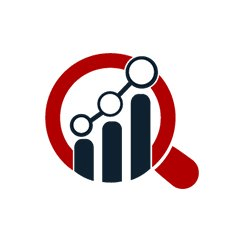As organizations increasingly adopt hybrid IT environments, the challenges associated with system monitoring have become more complex. This article explores the challenges of system monitoring in hybrid IT environments and potential solutions to address them.
1. Understanding Hybrid IT Environments
Hybrid IT environments combine on-premises infrastructure with cloud-based services, enabling organizations to leverage the benefits of both models. Key components include:
-
On-Premises Infrastructure: Traditional IT infrastructure, including servers, storage, and networking equipment, managed internally by the organization.
-
Cloud Services: Cloud-based solutions, such as Infrastructure as a Service (IaaS) and Software as a Service (SaaS), provided by third-party vendors.
2. Challenges of System Monitoring in Hybrid IT
Monitoring hybrid IT environments presents several challenges for organizations:
-
Complexity: The integration of on-premises and cloud-based systems creates complexity in monitoring, making it difficult to gain a unified view of system performance.
-
Data Silos: Data generated from different environments may be stored in silos, hindering the ability to analyze and correlate information effectively.
-
Security Concerns: Monitoring hybrid environments raises security concerns, as organizations must ensure that data is protected across both on-premises and cloud systems.
3. Solutions for Effective Monitoring
To address the challenges of system monitoring in hybrid IT environments, organizations can implement several solutions:
-
Unified Monitoring Tools: Leveraging unified monitoring tools that provide visibility across both on-premises and cloud environments can help organizations gain a holistic view of system performance.
-
Data Integration: Implementing data integration solutions can help organizations consolidate data from various sources, enabling more effective analysis and decision-making.
-
Security Monitoring: Organizations should prioritize security monitoring to identify potential threats and vulnerabilities across their hybrid environments, ensuring data protection.
4. The Role of Automation
Automation plays a critical role in enhancing monitoring capabilities in hybrid IT environments. Key benefits include:
-
Streamlined Processes: Automating monitoring processes can reduce manual effort and improve response times to potential issues.
-
Proactive Alerts: Automated monitoring tools can generate alerts based on predefined thresholds, enabling organizations to take proactive measures before issues escalate.
5. Future Outlook
The challenges of system monitoring in hybrid IT environments are expected to evolve as technology continues to advance. Key trends to watch include:
-
Increased Adoption of AIOps: Artificial intelligence for IT operations (AIOps) will play a significant role in enhancing monitoring capabilities, enabling organizations to analyze large volumes of data and identify patterns.
-
Focus on Resilience: Organizations will prioritize building resilient monitoring strategies that can adapt to changes in their hybrid environments and respond effectively to disruptions.
Conclusion
In conclusion, system monitoring in hybrid IT environments presents unique challenges that organizations must navigate. By implementing unified monitoring tools, integrating data, and leveraging automation, businesses can enhance their monitoring capabilities and ensure optimal performance across their IT systems.
More Releted Report:
Japan Entertainment & Media Market
Low Power Wide Area Network Market
Managed File Transfer Software and Service Market
Marketing Automation Software Market
Micro Mobile Data Center Market
About Market Research Future:
At Market Research Future (MRFR), we enable our customers to unravel the complexity of various industries through our Cooked Research Report (CRR), Half-Cooked Research Reports (HCRR), Raw Research Reports (3R), Continuous-Feed Research (CFR), and Market Research & Consulting Services.
MRFR team have supreme objective to provide the optimum quality market research and intelligence services to our clients. Our market research studies by products, services, technologies, applications, end users, and market players for global, regional, and country level market segments, enable our clients to see more, know more, and do more, which help to answer all their most important questions.



